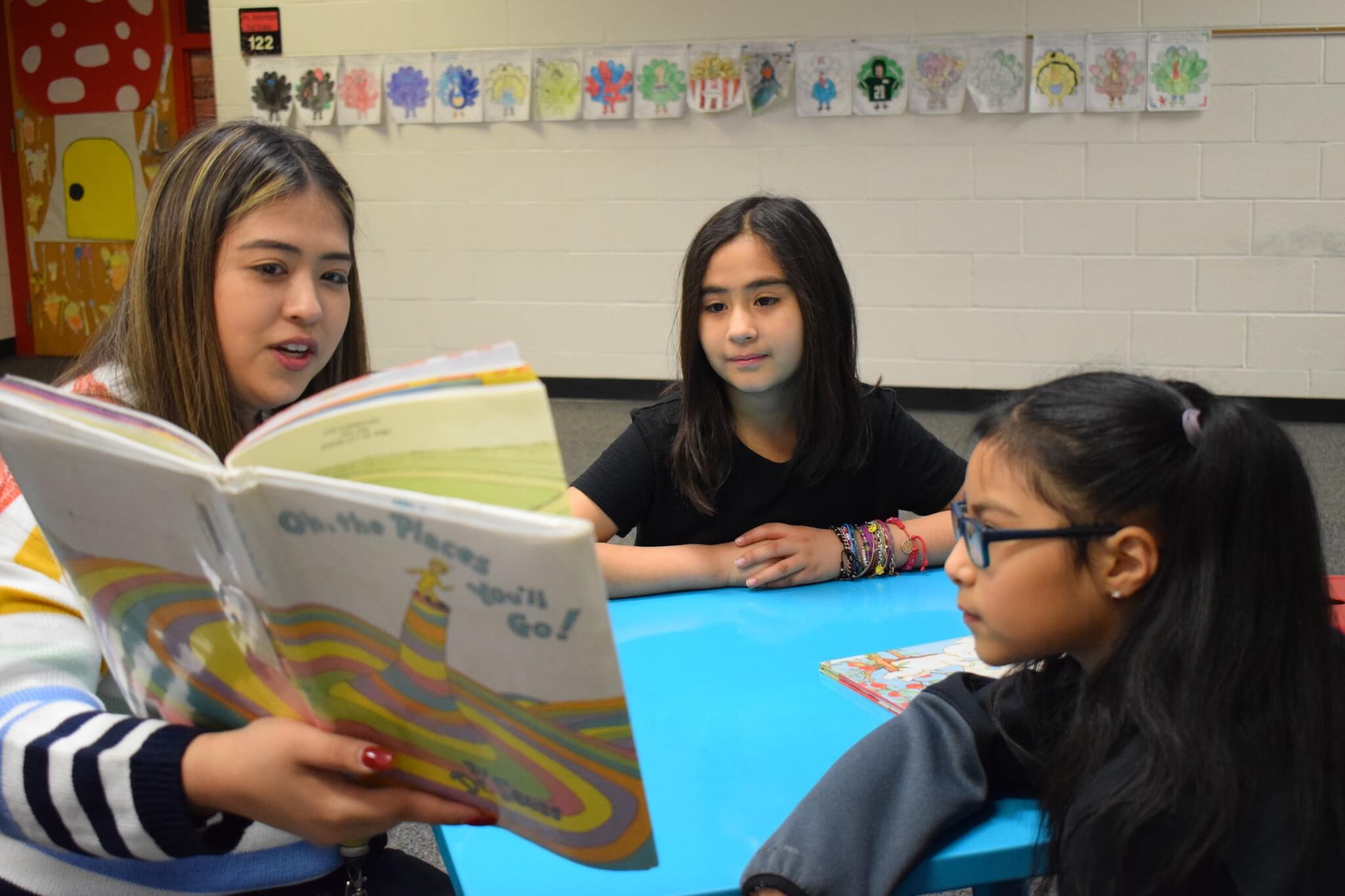
This blog is focused on the use of Swivl Teams. Teams is now Reflectivity – learn why we changed our name →
Hit the play button to listen to this article.
When administrators in Dodge City, KS, reviewed their student data in 2019, it was clear that literacy, specifically for their English Language Learners (ELLs), needed to be a top priority.
With 80% of the district’s 7,000 students identifying as Hispanic/Latino, this was already an area of focus. After receiving funding from a state grant, though, the district was ready to take a new approach.
Instead of focusing on top-down PD, Dodge City leaders invested in teacher coaching and self-reflection as a path to student literacy growth.
To better support ELLs, Dodge City needed to remake their tools and systems for coaching
According to Kelley Clark, Literacy Project Manager and Professional Development Coordinator, this was a research-informed decision.
“We had seen a body of evidence saying that PD sessions alone won’t give us the return we wanted,” Kelley said. “We needed to support what we were doing with instructional coaching.”
In the past, Dodge City had had versions of instructional coaching, and even used classroom video in support of it. But they had identified several challenges to address.
“Coaching looked different across buildings and between individuals. Coaches often did ‘other duties as assigned’ instead of true coaching,” Kelley said.
Their old method of capturing classroom video was also a challenge to address.
“Lots of teachers found coaches visiting classrooms and using iPads to record them intimidating. The teachers had questions: What’s going on with the video? Whose video is it?” Kelley said.
With a clear goal and challenges to address, Dodge City was ready to get to work.
Leaders replaced classroom visits with Swivl Robots to create a more teacher-centered coaching program
Dodge City systematized and focused their coaching efforts by adopting Jim Knight’s Impact Cycle. While coaches used to visit classrooms to record lessons with an iPad, teachers now recorded their own lessons with Swivl Robots.
Kelley was unsure how teachers would feel about recording themselves with Swivl Robots.
“The teachers actually preferred using the Robots to record themselves over having their coach record them with an iPad,” Kelley said.
At the same time, administrators and coaches audited coaches’ time. This clarified the job’s responsibilities and opened new ways for coaches to offer teacher support.
“Coaches began to leverage video captured by Swivl Robots at multiple points of the coaching cycle,” Kelley said.
This included:
- Capturing video before coaching to capture the current reality
- Coaches sharing model lessons for teachers to refer to during the coaching cycle
- Recording lessons during the cycle for reflection and richer coaching conversations
Additionally, Dodge City started using Swivl Robots to empower curriculum implementations. When ELA and Math teachers wanted to see a new curriculum taught in a lesson, coaches recorded and shared model lessons. These acted as concrete examples of instructional expectations teachers could revisit and share with others.
“We invested in teachers, focusing on collective efficacy,” Kelley said of the changes Dodge City made to support ELL achievement.
Teachers are empowered to reflect with classroom video, and ELLs show growth in crucial skills
“Change takes time. But we are seeing teacher practice shift,” Kelley said.
This shift in practice has led to concrete results related to Dodge City’s goal to support ELLs. Recently, the Dodge City ESOL and Diversity Director shared assessment data showing growth in speaking, listening, and reading skills for ELL students.
“It’s steady, incremental growth, which is what we want to see,” Kelley said.
Kelley believes that giving teachers tools to engage in meaningful self-reflection and coaching is a key piece of that growth.
“When the Swivl Robot is in the classroom, it’s an objective observer,” Kelley said. “Teachers look at what they’re doing, and how their kids are responding. That’s more powerful than anyone coming in and saying ‘you should be doing this or that.’”
Kelley looks forward to expanded use of Teams by Swivl (now Reflectivity) for asynchronous discussion through time-stamped commenting, as a way to enrich face to face conversations with teachers.
During a recent coaching session, Kelley observed the power of giving teachers tools to reflect on classroom video. While watching a video, the teacher saw how often she laughed with students and had fun moments with them during class.
“She was laughing and having a good time, but she wasn’t conscious of it,” Kelley said. “It’s not always about identifying negative things. There are so many positives to discover.”